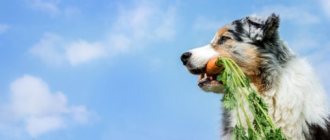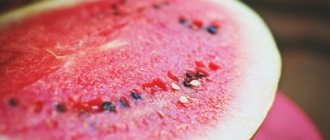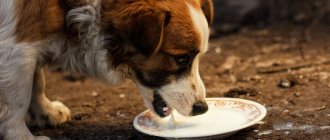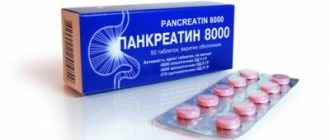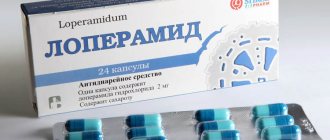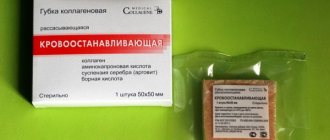Kidney failure in dogs is a relatively common health problem, especially in people with old age, although it can also appear in young dogs that have severe pathology such as canine leishmaniasis. The disease may affect one or both kidneys and may occur suddenly, acutely, or chronically. It appears when the excretory system is unable to properly filter the blood and remove unnecessary substances.
These animals will need regular veterinary monitoring, receive specialized pharmacology and adapt their diet, which must also be of high quality. Although at ExpertAnimal we have already commented in general terms on what a dog with kidney failure should be like, in this article we will talk about a homemade diet for a dog with kidney failure .
Basic rules for feeding dogs with kidney failure
The veterinarian will guide you so that you know how to approach a homemade diet for dogs with kidney disease, however, we want to remind you of some basic and important rules that we must consider when our dog has kidney disease:
- Hydration A dog with kidney problems will need to drink a lot more water to flush out as many toxins from the body as a healthy dog. This is very important to remember, so you should never have enough water on hand. In the most severe cases of dehydration, the serum should be administered orally, subcutaneously or intravenously. Also, given that you will be drinking more water, we should offer you more opportunities to urinate, take more walks, even if they are shorter.
- Wet food : Unlike dry food, homemade food and wet food provide a greater supply of water, so it is usually more beneficial for kidney failure. It is also considered more palatable, which means it tastes better, which will improve your mood.
- Avoid Salt Although we should never offer our dog's food with salt, in the case of dogs with kidney failure, it is a condiment that should be completely limited. This can cause very serious damage to your body such as vomiting, diarrhea, fluid retention, excessive thirst, kidney damage and mild poisoning.
- Reduce protein intake In cases of kidney disease, protein intake should be less, however it is important that the proteins provided are of high quality.
- Avoid Matcha As with protein, phosphorus damages the kidney and can lead to the accumulation of scar tissue. We should avoid eating any food that contains it.
- Increase your lipid intake Dogs with kidney failure very often suffer from a lack of appetite, so it is important to maximize their lipid intake, yes, as with protein we should always offer healthy fat.
Types of power used
Firstly, you should pay attention to specialized medicinal foods, which are produced by almost all major dog food manufacturers around the world. To do this, it would be better to consult with an experienced veterinarian. Of course, not all dog owners have the opportunity to spend money on purchasing such food, and therefore here is a list of foods that can and cannot be included in the diet of a sick dog:
- In small quantities: rabbit, chicken, beef. It is entirely possible to provide waste from meat production, but only if it is of reasonable quality. This is especially important if the dog has lost weight. By-products are allowed (good liver, heart and kidneys). It is important to remember that in the early stages of the disease the amount of protein may be almost normal, but it must come from quality foods. For old dogs, it is advisable to reduce the amount of meat and offal to a minimum.
- Cereals should be limited as much as possible, since they contain a lethal dose of carbohydrates, and they are extremely contraindicated in chronic renal failure.
- Bones - only in the early stages. In all other cases, they are completely excluded from the diet!
- But the dog should get a lot of fat. You can give directly pressed vegetable oil, chicken or rabbit fat. Vegetable oils are especially important because they contain a lot of vitamin E, which is a powerful antioxidant.
- Vegetables will be useful for your dog. For him to eat them, the food is passed through a blender and chicken or rabbit broth is added. It is important to remember that the diet for dogs with kidney failure should exclude stress, so you should not force raw carrots into your dog.
- Don't forget to add complexes of water-soluble and fat-soluble vitamins to your food. But! Vitamin A is strictly contraindicated! The veterinarian treating your animal should tell you more about this.
Homemade Dietary Ingredients for Dogs with Kidney Failure
then we will mention some foods that we can use to develop our homemade diet for dogs with kidney failure. We've chosen a variety of meats and fish, fruits and vegetables, plus some extras that may also be healthy. Please remember that these ingredients are offered in specific quantities based on the appropriate proportion required by each individual. All of this should be directed by our trusted veterinarian.
Fruits and Vegetables for Dogs with Kidney Failure
There are many fruits and vegetables recommended for dogs that we can include in a homemade dog kidney failure diet that will help us offer healthy amounts of fiber, water, vitamins and minerals . Some of these may be:
- cucumber
- pepper
- broccoli
- cabbage
- Jewish
- green pea
- turnip
- radish
- zucchini
- cauliflower
- carrot
- pear
- apple
- watermelon
- peach
Vitamins for dogs with kidney failure
Some dogs have certain vitamin or mineral deficiencies caused directly by kidney failure. In these cases, our veterinarian will explain how we can correct these deficiencies. Using multivitamins or supplements found in food are some options.
Dogs with kidney failure experience high levels of phosphorus in the blood, which reduces their calcium intake . Additionally, they should also get the extra good fat recommended for dogs. So some examples for enriching your diet could be:
- Fish fat
- Sunflower oil
- Corn oil
- Olive oil
- White Rice Coconut>
Recipe for dogs with kidney meat failure
Here is an example recipe for dogs with kidney failure, in this case we chose beef, however you can substitute some of the above:
Ingredients:
- 60 g white rice
- 75 g beef
- 15 g carrots
- 15 g broccoli
- 1 g calcium carbonate
- 1 teaspoon olive oil
Preparation:
- Add water to the fire, and when it boils, add rice. The approximate cooking time is 20 minutes, so while this is starting to cook we will move forward with the rest of the ingredients.
- Peel and cut vegetables, meat and liver into small cubes.
- Halfway through cooking, after 10 minutes, bring the vegetables to a boil. We will add meat and liver only 5 minutes before the fire goes out.
- Once everything is cooked, the only thing we need is to strain the ingredients (avoid the white foam that might be normal), add calcium carbonate (you can also use crushed shells) and let the whole set cool.
- You can finish with a small teaspoon of olive oil.
Recipe for dogs with fish kidney failure
To prepare this example recipe for dogs with kidney failure, we used anchovies, however, as in the previous case, you can substitute other ingredients:
Ingredients:
- 60 g white rice
- 75 g anchovies
- 20 g cabbage
- 10 g apple
- 1 g calcium carbonate
- 1 teaspoon salmon oil
Preparation:
- Boil water and as soon as it boils, add rice. Remember that the cooking time is 20 minutes. In the meantime, we will prepare the other ingredients.
- Peel and cut the hake, eggplant and pear into small cubes.
- After 5 minutes, add vegetables and hake.
- At the end, be sure to strain the ingredients and add calcium carbonate and a teaspoon of salmon oil, they love it!
Is a low protein diet necessary or desirable for kidney problems? in dogs
Over the past 10 years, great progress has been made in the field of nutrition for dogs and especially dogs with renal failure. Although there is still a lot of controversy among doctors and nutritionists, the study allows us to better understand the role of protein in supporting patients with kidney failure. Here I will try to give the basic ideas on nutrition, and you will make the decisions yourself.
- There is a relationship between the amount of dietary protein and clinical symptoms of kidney failure.
- If your dog develops symptoms of uremia - decreased appetite, vomiting, depression, electrolyte abnormalities, ulcers, increased blood urea nitrogen and creatinine, weight loss - then it is recommended to reduce the amount of protein in the diet. Reducing the amount of protein before the onset of these clinical symptoms does not affect the development of renal failure. The pathogenesis of renal failure is not clear and the rate of development of the disease is not the same.
- We know that increasing the protein content of food leads to increased blood flow to the kidneys. This is true for both healthy dogs and dogs with reduced kidney function.
- An increased amount of protein in food does not affect the rate of development of renal failure. The amount of protein in the diet does not affect mortality, the rate of uremia, or kidney damage.
- Reduced dietary protein can inhibit the immune response, reduce hemoglobin levels, cause anemia, reduce overall protein levels, and lead to decreased muscle mass.
- Reducing the amount of phosphorus taken into the body is an important consideration in caring for dogs with kidney failure.
- Renal failure occurs after 3/4 to 15/16 of the kidney mass is lost.
- When reducing protein in the diet, it is necessary to increase the amount of fat and carbohydrates in order to provide alternative sources of energy.
Much of the research on kidney failure and diet has been done on rats, as well as dogs that have kidney failure as a result of surgery and geriatric dogs that have kidney failure as a result of age-related changes. Can the results of this study be generalized to dogs with amyloidosis, immune-mediated kidney disease, or inflammatory kidney disease? Additional research is needed to answer this question. The data we currently have allows us to draw the following conclusions:
- The level of protein in the food should correspond to the activity of the dog. Dogs with low activity levels and high protein diets will soon become overweight, which can lead to serious problems.
- Dietary protein levels in food do not influence the development of kidney disease or help prevent kidney failure. However, I prefer to adhere to conservative views. In my opinion, 20-24% protein is probably the safest level. Of course, it is necessary to take into account the source of protein, its biological value, fat content, carbohydrates, etc.
- When blood urea nitrogen is greater than 75 mg/dL and/or signs of uremia become apparent, moderate restriction of protein intake is recommended in order to reduce the presence of blood urea nitrogen and clinical symptoms. At the same time, it is recommended to reduce phosphorus intake. The easiest way to do this is by using food for dogs with kidney disease.
- In dogs with renal failure, blood urea nitrogen and creatinine levels should be tested regularly. My experience with Shar Peis is that this breed shows signs of kidney disease too late, when BUN and creatinine levels are already too high. Often Shar Pei owners miss those subtle early changes and bring their dogs to the vet too late.
Currently, diet does not play an important role in preventing kidney disease in Shar Peis. I believe that as a preventative measure, it is necessary to avoid exposure to substances and situations that can cause kidney damage. Some medications, such as aminoglycoside antibiotics, can cause kidney damage and should therefore be avoided if possible. Reduced renal blood flow can lead to kidney damage, so in such cases, intravenous infusion is recommended, which is carried out under anesthesia and using appropriate equipment. Situations that lead to decreased blood flow to the kidneys, such as heat stroke, flatulence and shock, should be avoided. Some infectious diseases also cause kidney damage. These include: bacterial diseases, heartworm, leptospirosis, Lyme disease, etc. Toxins like ethylene glycol (antifreeze) and arsenic also cause kidney damage. In most cases, we can prevent such situations. Most importantly, dogs need to be closely monitored to recognize the earliest signs of kidney failure, when dietary changes may help.
See the article “Diet for kidney failure”
© 2002 Dr. Jeff Vidt, DVM, Chairman of the Health Through Education Committee of Chinese Shar-Pei Club of America, Inc. © 2003 Elena Ivashchenko (Elf) Translation from English - Igor Zverev.
Below you will read quotes from a number of articles and research papers on the role of protein and phosphorus in the diet of dogs with kidney failure, as well as links to primary sources. I've included excerpts from these articles, but if you are dealing with a dog suffering from kidney disease, I would encourage you to read them in their entirety as they contain much more information than I provide here.
Dogs with kidney problems , article doc. Lucy Pinkston, DVM: "Since the by-products of protein digestion are the main toxins that must be eliminated by the kidneys, the obvious assumption is that the only need is to limit protein so that the kidneys don't have to do the hard work... However, there is an important evidence that for dogs with chronic renal failure, the daily protein intake should actually be slightly higher. Therefore, a drastic reduction in protein for these dogs is likely to result in disruption of the body's protein supply, even though urea nitrogen levels (a major by-product of protein metabolism) will be correspondingly lower.” This article contains a wealth of easy to read information.
Are High Protein Diets Harmful to Dogs' Kidneys , Dept. of Veterinary Services, Dr. Foster and Smith Corporation: "The myth that high protein diets are harmful to the kidneys may have arisen because in the past it was commonly prescribed to patients with kidney disease a low protein diet (hence low urea nitrogen). We are now defining a diet for them that is not necessarily very low in protein, but contains protein that is easier to digest and therefore produces less nitrogen waste."
The Mythology of Protein Restriction for Dogs with Reduced Kidney Function, Kenneth C. Bovee, DVM, MS : “Morris developed, manufactured and launched a low protein food, KD, for dogs with kidney failure. He and others were influenced by Addis's erroneous concept of working hypertrophy in urination. Since neither experimental nor clinical data in favor of this or other feeds have been published, this concept has categorically become widespread in the veterinary literature.” This article discusses the development of the concept of protein restriction and cites about 10 recent experimental studies that have not confirmed the beneficial effects of a protein-reduced diet on kidney failure. This article is no longer publicly available, but I have a copy and can send it to anyone interested (ask for Bovee.pdf).
Nutrition and Kidney Function , from Purina Research Report: "Dietary Protein and Kidney Function: Multiple Studies Find High-Protein Diets Have No Negative Effects." This report also contains information on metabolic acidosis and the beneficial effects of omega-3 fatty acids in patients with chronic renal failure. The full report of each of the three studies mentioned is no longer readily available, but I have copies that I can send to anyone who would like to read more: "Effects of Dietary Fat on Kidney Function in Dogs and Cats" (request Brown.pdf), “Effects of Dietary Protein Intake on Kidney Function” (request Finco.pdf) and “Acids-Bases, Electrolytes and Renal Failure” (request Polzin.pdf).
Feeding a Mature Dog , from SpeedyVet Clinical Nutrition Library: “It has been suggested that low protein diets inhibit the development of renal degeneration. This assumption was refuted in partially nephrectomized dogs that did not exhibit uremic symptoms and whose renal function was reduced but stable over 48 months. These dogs did better on a moderate protein diet than on a low protein diet. There is no direct evidence that high protein intake harms the kidneys of dogs or that reducing protein in the diet of dogs with kidney dysfunction results in preservation of kidney structure or function.”
Managing chronic polyuric renal failure with diet from the SpeedyVet Clinical Nutrition Library: “Dietary protein restriction improves the clinical manifestations and quality of life of animals with uremia caused by natural or experimentally induced renal failure... However, the appropriateness of protein restriction in the diet of patients with azotemia is highly questionable, but without uremia. The main risk of protein restriction is protein deficiency. The quantitative protein and amino acid requirements of dogs and cats with chronic renal failure have not been established, but may well be increased... The only justification for protein restriction in the early stages of renal failure would be to demonstrate that it slows the progression of the disease. The data we have does not support this for dogs. "Dietary protein influences renal hemodynamics in dogs, but moderate protein restriction does not reduce glomerular hypertension, hyperfiltration, and hypertrophy... Thus, there is no evidence that moderate protein restriction slows the progression of canine renal failure and is not recommended for dogs without signs of uremia."
Debunking the protein myth from Today's Breeder Magazine: “On the contrary, research over the last 10 years or so has shown that protein does not harm dogs' kidneys. Studies conducted by the University of Georgia in the early 1990s in both dogs with chronic renal failure and dogs with one kidney show that a protein level of 34% does not produce a negative effect... Other studies - David S. Kronfeld, Dr. -. showed that, compared with high- and low-protein foods, foods with moderate protein levels—up to 34%—had no adverse effects on dogs with chronic renal failure and were associated with overall improvement.”
Strengthen Your Aging Dog's Bowl Maintenance by Susan Thorpe-Vargas, Ph.D. and John C. Cargill, MA, MBA, MS: “Due to certain biochemical requirements, a healthy dog in old age needs 50% more protein than a young dog, and, depending on the quality of the protein, it should be from 20 to 30% of all calories received... Until recently, protein reduction was recommended to preserve kidney function. Restricting protein does not prevent filtration problems... In fact, recent research shows that protein in the diet does not impair kidney function. On the contrary, the exclusion of protein can lead to the inability to heal wounds, decreased immunity, decreased enzyme activity and cellular metabolism. Dogs with unrecoverable kidney function are more likely to need to reduce phosphorus in their diet; however, restricting this mineral is unlikely to delay kidney disease or be beneficial in healthy aging dogs.”
Dietary management for clinical disorders in dogs from the Journal of Indian Veterinary Association, Kerala: “Recent studies on dietary protein and kidneys have shown that: o protein is not a cause of kidney failure o no effect of protein on the progression of chronic renal failure o unjustified exclusion protein from the diet may, in fact, have the opposite effect on a normal or questionable kidney.”
Kidney Failure from Iams Nutrition Symposium Proceedings: “For a number of years, doctors and veterinarians have reduced protein levels in the diet when treating kidney failure,” said Gregory Reinhart, Ph.D., Iams scientist. “After collaborating with a number of universities, we discovered that limiting protein in a dog’s diet may cause more harm than good, as it potentially exposes the pet to a compromised protein supply.”
What to Do During a Kidney Crisis , Martha S. Gearhart, DVM: “...at least one study involved several groups of dogs with kidney failure that were fed diets with varying levels of protein and phosphorus. Groups that were significantly phosphorus restricted lived longer than groups receiving normal or high phosphorus levels. The amount of protein consumed had no effect on lifespan at all...” “It’s important to remember that phosphorus is more important than protein—feeding vegetables or unsalted crackers to a dog with kidney failure will not add protein, but it will add phosphorus.”
Protein in the diet and the kidneys , Patricia Schenk, DVM, nutritionist: “High protein diets lead to increased blood flow through the kidneys (glomerulofiltration rate). There is a myth that if protein is limited in the diet, the kidneys work less and this “saves” them from damage. Thus, in the past, many people recommended low protein foods to “protect” dogs from developing kidney disease. This has been the focus of research over the past 10 years. There was no scientific evidence to support this theory. A low protein diet does NOT prevent the development of kidney disease.” “Reducing protein in the diet of older dogs will not protect them from developing kidney disease. In fact, reducing protein in the diet of older dogs may have the opposite effect. As pets age, their ability to absorb nutrients decreases. In fact, an aging animal requires higher levels of protein to maintain body protein stores than a young adult dog...” “Reducing protein in kidney failure makes sense when the disease is advanced. It depends on the clinical symptoms. It is recommended to begin reducing protein when urea nitrogen is greater than 80 mg/dL [28.6 mmol/L] and serum creatinine is greater than 2.5 mg/dL [221 µmol/L]. Both BUN and creatinine are important indicators of kidney function. Protein is reduced to keep urea nitrogen levels not exceeding 60 mg/dL [21.4 mmol/L]. It is possible to gradually reduce protein in the diet as kidney failure progresses.”
Effects of low-phosphorus, moderate-protein diets on dogs with chronic renal failure: “In this study, 60 dogs with early-stage ESRD were fed either a moderate-protein diet (one group) or a home-cooked diet (another group) for 28 weeks. ). The composition of the food was, respectively, for the first group 0.36% phosphorus, 27% protein and for the second - 0.38% phosphorus, 21.5% protein in dry matter... The result of this study was the conclusion that many dogs with mild to moderate degrees of chronic renal failure may benefit from early diagnosis of the condition and the use of low phosphorus, medium protein feeds.”
Protein in the diet , Dr. Jeff Widt, Chinese Shar-Pei and renal amyloidosis specialist: “Increased levels of dietary protein do not appear to affect the progression of kidney failure. Dietary protein levels do not influence mortality or progression of uremia or kidney damage. Reduced levels of protein in the diet can harm the immune system, reduce hemoglobin levels, cause anemia, reduce total protein levels and cause muscle loss... Dietary protein levels do not appear to be associated with the progression of kidney disease and have no role in the prevention of kidney failure... When BUN levels exceed 75 mg/dL [26.8 mmol/L] and/or signs of uremia develop, moderate protein reduction is indicated to lower BUN levels and reduce clinical symptoms. Phosphorus limitation is also indicated during this period.”
Protein Restriction and Kidney Disease , excerpted from Kirk's Current Veterinary Therapy XII with links to some of the abstracts: "In perhaps the most famous clinical trial examining the effect of a high-protein diet on the progression of ESRD, groups of dogs diagnosed with ESRD were fed either a high-protein diet, or food with low content. In the group receiving the high-protein diet, there was no significant difference in the degree of progression of chronic renal failure. Therefore, it appears that dietary protein does not impair renal function even in the presence of high endogenous protein levels associated with disease. In fact, at the individual dog level, some dogs even improved on the high-protein diet. This result was recognized to be due to the fact that the protein is essential for cell repair and function.”
Please note that the above information is taken from traditional sources including Purina and Iams. I think Hills is the only company that is committed to "low protein." The current thinking is that low protein may, in fact, be harmful and that moderate amounts are desirable for dogs with kidney disease. Additionally, a protein-reduced diet does not prevent kidney failure in dogs with healthy kidneys. For information on phosphorus and the role of excess levels in the blood (in humans), see Phosphorus
See next: Designing a diet for dogs with kidney failure...
Homemade food for dogs with kidney failure
Kidney failure in dogs requires special treatment to resolve it, or at least improve the quality of life of the dog with chronic failure. Food is essential so that your urinary system can restore itself to its healthy and normal state.
First, what food can a dog with deficiency problems eat? To begin with, you will have to reduce the protein intake in your diet, so meat and fish will be consumed to a lesser extent. But that doesn't mean you have to eliminate them completely! In moderation, homemade food for dogs with kidney failure can include chicken, veal, liver, pork, lamb, monkfish, hake, egg whites and sea bass.
Fruits and vegetables are also very important as they provide vitamins, minerals and help keep your dog hydrated. Of course, you should always give them peeled and, if they have seeds or bones, remove them as well. Some of them are zucchini, cucumbers, cabbage, turnips, eggplants, peppers, beans, cauliflower, carrots, peach, pear, watermelon, apple...
Additionally, as a dietary supplement, you can add olive oil, calcium carbonate or crushed eggshells, white rice... It is also interesting to consult with your veterinarian about possible dietary supplements that may be beneficial for your dog. The important thing is that it is a balanced and varied diet, you should not eat the same thing every day!
Dog with renal failure: characteristics of the disease
Kidney Failure This causes the kidneys to not perform their full function, which has many consequences on the body. Since the kidney is the filter that our body has for various blood toxins and wastes.
although kidney failure can be due to several reasons, such as circulatory problems or toxins. The truth is that the dog with the most common kidney failure is an older dog. This usually occurs chronically due to wear and tear of the kidneys and other diseases such as hypertension or diabetes.
The good news is that if a dog with kidney failure has two kidneys, the loss of kidney function will usually be compensated for, although it must be supported by proper nutrition to avoid reaching the point of no return with kidney failure.
Prevention of kidney failure
Kidney problems can be avoided. To do this, it is enough to take several preventive measures.
Watch what goes into your dog's body
Watch your dog while walking. Don't let her drink from ponds and puddles, don't let her eat what's lying on the ground. Both water and food debris on the ground can contain dangerous toxins that can cause ARF. Take water in a special container and treats with you, so you will know exactly what your pet is eating.
Make sure your dog drinks enough
Water is very important for normal kidney function. Therefore, your dog should always have access to fresh, clean water. In addition, enough liquid should be contained in food.
Take care of your dental health
Bad teeth are not an obvious but common cause of diseases of other organs, including the kidneys. Check your pet's teeth regularly. Ask your veterinarian to examine your dog's mouth at your next visit.
It is important to keep your teeth clean. You can remove plaque with a toothbrush. A good prevention of plaque and tartar is a natural diet. Raw meat and bones help fight dental stains.
Monitor your pet's diet
A healthy gastrointestinal tract is the key to strong immunity and the health of other organs. A typical diet normalizes metabolism, maintains proper microflora and stomach acidity, strengthens the body and helps fight various ailments. Dogs' bodies easily digest fresh, natural food and receive many nutrients from it. All this improves the health of pets and is an excellent prevention of kidney failure.
Don't forget to diversify your pet's diet. This increases your appetite and helps you better maintain the balance of essential nutrients. Try healthy eating today: SUPERPET offers ready-made natural food from different types of meat. Help your pet eat healthy to avoid health problems.
Dog with kidney failure: consequences, diagnosis and treatment
A dog with kidney failure will have poorly concentrated urine, thirst, and even weight loss. Well, they often eat little. They may have other more serious symptoms such as vomiting and ammonia breath, which is why it is sometimes confused with urinary infections, which it may be associated with.
Of course, the first thing to suspect about having a dog with kidney failure is to contact a veterinarian, who will give us the appropriate steps, which begin with the correct diagnosis of the disease through blood tests.
Although fluid rehydration, dialysis or even transplantation are options for kidney failure, the truth is that in most cases when we have a dog with kidney failure, the feeding of these animals must be changed to relieve pressure on the kidney
Rice recipe with liver and meat
- 60 g white rice
- 15 g broccoli
- 75 g beef and liver
- 15 g carrots
- 1 g calcium carbonate or crushed eggshells
- Cook rice in unsalted water.
- Cut the meat, liver and vegetables into very small cubes and cook them too. This can be with rice or separately. Meat and liver need to be cooked in just 5 minutes.
- Mix everything and add calcium carbonate or crushed shells.
Ready! You can portion it, freeze it, and take it out for convenience.
Dog with Kidney Failure: Recommended Diet
provided Diet is one of the most important stages of treatment for a dog with kidney failure. It is recommended that a portion of this text be devoted to clarifying the series of guidelines for monitoring the nutrition of a sick animal.
This diet should provide proper hydration, both through wet food and water, and special attention should be paid to minerals such as sodium and phosphorus, and nutritional elements such as proteins : all should be limited, although in the case of proteins there are more of them. than necessary, so they must be of high quality.
When it comes to commercial food, there are several commercial houses, in many cases designed for older animals. Another option is to make homemade diets with the recommendations given to us by the veterinarian.
It is important to note that you should never salt food and should be low in phosphorus, so we should not offer liver, fish, cheeses, dairy products or legumes to our pets . Cooked rice and meats such as chicken can be excellent choices. if they are part of the diet that our vet makes, and even an egg: we are looking for quality proteins that allow the kidneys to work.
It is important not to choose an unformulated food for this condition: In many cases, the food contains low quality proteins that do not even come from meat and can significantly worsen a dog's kidneys in kidney failure. By following the advice of professionals and feeding our pet, he can live for many years, even if his kidneys are compromised.
Graduated in veterinary medicine from the University of Leon (2018). Specialization in Primate Biology and Behavior (Wildlife Biology) University of Girona .
He has participated in various courses and conferences:
- XVIII AVAFES-Zaragoza Conference on Primatology of the Association AVAFES-Zaragoza (2014-2015).
- VI Conference series Exotic and wild fauna AVAFES-Leon Association (2014-2015).
- International Days of Wildlife Pathology organized by the AVAFES Leon Association (May 2021).
- X Theoretical and practical course in primatology: Communication in primates at Rainfer Primate Rescue Center (April 2021)
- III year at the Gurones Clinic of the AVAFES-Leon Association (2014-2015).
- Course “ Biodiversity crisis , conservation and threatened species” by La Jurbial Environmental Services and the University of Leon.
- Course “ Welfare of wild animals in captivity” Organized by Avafes León (February 2021).
- MOOC course “ Environmental issues in a changing world” From the University of Navarra (December 2016)
- MOOC course “ Cognition and Canine Emotions” From Duke University (February 2021)
- MOOC course " Introduction to Conservation " from United for Wildlife (2015).
Eugenio Fernandez Suarez is a veterinarian with experience in wildlife and with a particular focus on primates . He has collaborated with various sanctuaries and reception centers in Spain, and has a special interest in animal behavior , animal welfare and scientific and environmental dissemination through various projects. Volunteer at the Forest Zoo (Oviedo).
The disease we are talking about in this article is known by several names: rickettsiosis, hemorrhagic fever or canine ehrlichiosis. This is a serious infectious disease that must be diagnosed promptly. Keep reading if you like...
If you are someone who enjoys outdoor activities or have a dog, you will be interested in knowing what diseases are transmitted by ticks and what you can do to avoid them. Ticks, one of the most hated insects...
At some point you may have wondered whether dogs can suffer from tetanus. If so, why don't we vaccinate them against this disease? The answer is that although dogs can suffer from this disease, they are relatively resistant...
Contagious canine hepatitis is a disease worldwide that ranges from very mild cases to fatal cases. This viral disease has no cure, so if your dog is infected, you should try to control the disease and...
Surely you have ever heard of hip dysplasia in dogs. But do you really know what it is, what its causes are and how to treat it? If you want to know more about this disease, in this article we will give you everything...
Of course, you have ever heard of anemia. Both people and animals can suffer. Anemia in cats is a decrease in the number of red blood cells or red blood cells. These are the cells responsible for...
Rice and fish and vegetables recipe
- 60 grams of rice
- 10 g pear
- 75 g hake
- 20 g eggplant
- 1 g calcium carbonate or crushed eggshells
- Cook rice in unsalted water.
- Cut hake, pear and eggplant into small cubes and add to cooking.
- When finished cooking, strain it if there is any trace of water left and add calcium carbonate or eggshells.
You can let it cool completely before giving it to your dog or give it heat. Freeze what's left and you can remove it as needed.
Remember! You should always feed this special diet under the supervision of your veterinarian! In addition, It will help you create a nutrition plan for your dog and make it as varied and balanced as possible.
Causes
| Cause | Diseases |
| Genetic problems | Amyloidosis (deposition of abnormal protein in the tissue of internal organs, which leads to difficulty performing their functions); Polycystic disease (many cysts filled with fluid form in the kidney, part of the organ turns into a vesicular formation). |
| Parasitic infestation | Piroplasmosis (caused by hematopoietic parasites of the genus Babesia, which destroy red blood cells and have a toxic effect on the body as a whole); Hemobartenellosis (the pathogen blocks the activity of red blood cells, causing anemia). |
| Infectious diseases | Leptospirosis (caused by leptospira bacteria that affect the kidneys, liver, and circulatory system); Viral hepatitis (a pathogen from the genus adenovirus provokes fever, inflammation of the mucous membranes and gastrointestinal tract, damage to the central nervous system and liver); Carnivore plague (one of the most common and dangerous diseases, causing inflammation of the mucous membranes, malfunction of the central nervous system and other organs); Viral enteritis (the pathogen affects the stomach and intestines, blocks the digestion of food and absorption of nutrients, and also affects the kidneys, heart, liver). |
| Inflammatory diseases | Pyelonephritis (the introduction of bacteria into the kidney tissue provokes the overgrowth of the area with leukocytes, where an inflammatory focus subsequently occurs); Glomerulonephritis (damage to the renal glomeruli, dangerous due to accelerated loss of protein in the urine); Nephrosis (degenerative change in kidney tissue as a whole). |
Also, the development of the disease may be based on congenital underdevelopment of organs, tumor processes, urolithiasis, poisoning with household or medicinal poisons, and salts of heavy metals. Some breeds are more genetically predisposed to developing complications than others.
DETAILS: Urological collection for leukocytes
The disease, depending on the cause of its occurrence, has several varieties:
- Renal. The most common variant is characterized by damage to the kidney tissue itself. Occurs as a result of infection, toxic effects, inflammation.
- Prerenal. It is based on a lack of blood inside the organ, most often a consequence of surgery, dehydration, anesthesia, blood loss, and heat exposure.
- Postrenal. Occurs due to mechanical narrowing of the lumen (stones, tumor, etc.).
